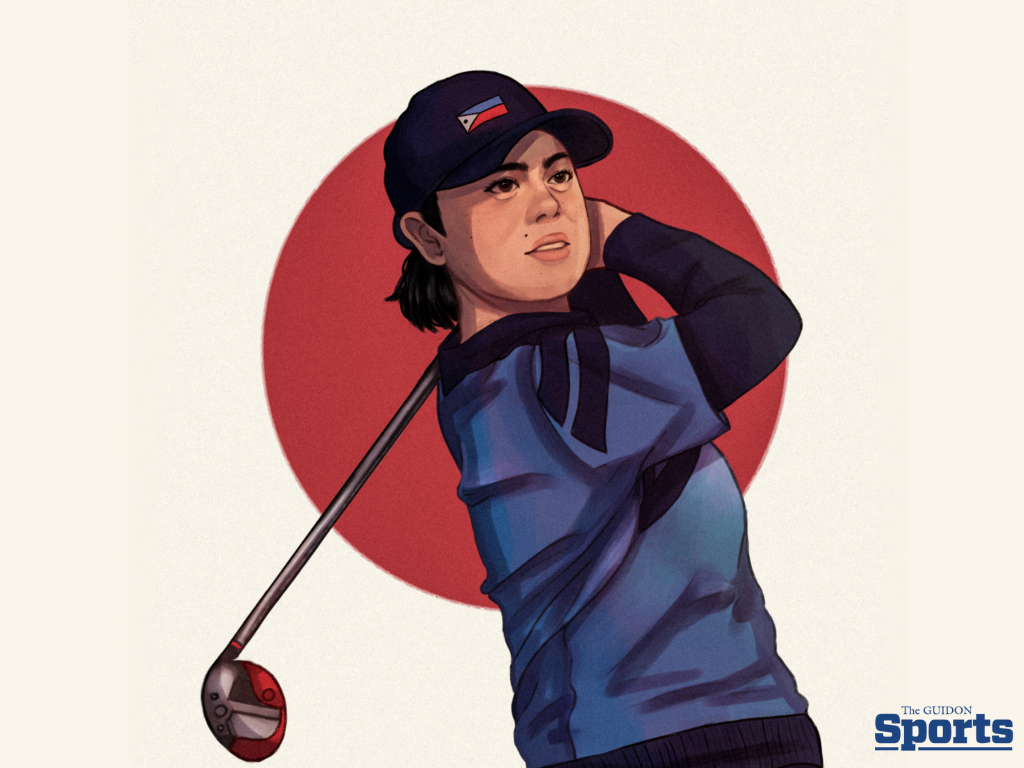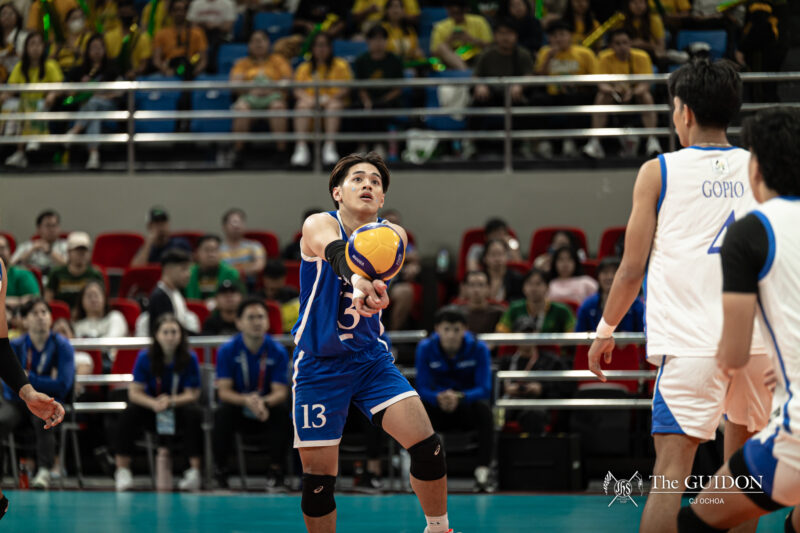ALTHOUGH THE Philippines will lose one of its top-seeded Filipina golfers, Yuka Saso made the better decision for her growth as an athlete in choosing to become a Japanese citizen.
Saso has represented the Philippines in tournaments since her days as a junior golfer in 2011. However, this will soon change once she turns 22 after she decided to choose her Japanese citizenship over her Filipino citizenship. Saso, who currently has a dual Filipino-Japanese citizenship, has to abide by Japan’s Nationality Law which requires dual citizens to choose their nationality by their 22nd birthday.
Golf’s wunderkind
Born to a Filipina mother and a Japanese father, Saso moved back to the Philippines from Japan when she was eight years old to hone her golfing skills. Her family’s rationale for the move centered around the cheaper country club memberships and golf mentorships in the country.
Saso, who can trace her roots to Bulacan, started competing at nine years old when she represented the Philippines in the 2011 US Kids golf tournament. She then took part in the 2014 Association of Southeast Asian Nations School games that was hosted in Marikina City.
In 2016, the 15-year-old Saso bagged the gold medal at the 2016 World Junior Girls Championship. Two years later, she won the 2018 Philippine Ladies Open which is the top women’s golf tournament in the country.
Saso further proved to be a golf prodigy after securing double golds in the 2018 Asian Games before turning pro at the age of 19. Saso eventually introduced herself to the professional level with a statement win in the 2020 NEC Karuizawa championship held in Japan. Two weeks later, she tallied her second victory at the Japan Ladies Professional Golfers’ Association (LPGA) with a win in the Nitori Ladies golf tournament.
To cap it all off, Saso made history on June 6 as she triumphed in the 2021 US Women’s Open, becoming the first Filipino as well as the youngest golfer to win the major—matching South Korea’s Inbee Park at age 19 years, 11 months, and 17 days.
A business decision
Given all of Saso’s accomplishments, there is no doubt that she has a bright future ahead of her. Still in the process of reaching her full potential, she would need to make difficult decisions to sustain her competitive career—including choosing her Japanese citizenship over her Filipino one.
Saso’s dual citizenship became a hindrance to her financial gain from endorsements because Japanese culture highly values loyalty. While Japanese companies previously invested in Saso when she represented the country and competed for another LPGA major, more brands could invest in her career if she embraced her Japanese citizenship.
Given the need to secure her sponsorships and endorsements, Saso’s decision to remain a Japanese citizen is primarily a business decision. Financially, Saso’s $1 million worth of earnings from the US Women’s Open does little to guarantee her stability, as the costs of being a professional golfer remain high.
According to a report by USA Today, a professional golfer in the LPGA spends about $173,200 or Php 8,690,000 in a span of 25 events, with players shouldering 100% of their travel and accommodation costs. Hotel, airfare, and rental car fees amount up to $26,000 (Php 1,308,489) alone, while additional expenses towards golf and caddie services can go as high as $96,000 (Php 4,831,344).
The sad reality of Philippine sports
As Saso’s decision may be career-oriented, it is evident that her earnings are more secured with a Japanese citizenship and she cannot be blamed for making a strategic move for her professional career. Ultimately, Saso’s situation is testament to the limited opportunities and lack of support Filipino athletes face, whether from potential earnings, government aid, or recognition.
Wesley So, a Filipino native chess player, is another concrete example. So decided to pursue an American citizenship because he lacked the necessary “connections” to be able to thrive in the Philippines. So also received lukewarm recognition for his achievements in the Philippines, particularly for his gold medal feat in the 2013 Universiade.
Recently, EJ Obiena—arguably the best pole vaulter the Philippines has produced—has been in conflict with the Philippine Athletics Track and Field Association due to liquidation issues that have led to the suspension of his funding. According to Obiena, he has gone three months without pay, leading him to settle his expenses out of his own pocket.
Amid the issue, it has been confirmed that Obiena has received offers to compete for other countries.
Furthermore, numerous basketball talents like Thirdy Ravena, Kobe Paras, and Juan Gomez de Liaño have decided to fly overseas and join the Japanese B. League where ball clubs pay as high as $20,000 a month—about seven times more than what a rookie in the PBA earns.
Filipino volleyball superstars also chose to compete professionally abroad, such as Marck Espejo who had stints in Japan, Thailand, and Bahrain, enabling him to gain international exposure and recognition. Additionally, Saitama Ageo Medics Filipino player Jaja Santiago received an offer to become a Japanese citizen and potentially represent the country in international tourneys like the Olympics.
Simply put, Saso’s citizenship decision is nothing new. Filipino athletes opting for other countries is a clear indication that the Philippines lacks opportunities for them to grow in their competitive careers. Given this, the struggles of our local athletes should be an immediate concern as the culture and country’s leaders continue to disregard the urgent need to upgrade forms of support.
What the Philippines can do moving forward
As the government admitted to the inadequate financial aid for our sports sector, the Philippines should look into refining athlete support. Over the last decade, there have been improvements in the budget. For the 2020 Tokyo Olympics, the Philippines Olympic Committee had a budget of Php 944 million—four times more than past Olympic years. The Philippine Sports Commission may also enjoy a Php 175 million budget in 2022, as well as an additional Php 650 million for general appropriations.
While the budgeting for our sports sector remains small compared to other countries, the Philippines should continue increasing aid for our athletes’ financial needs.
Should the government budget deem insufficient, help from the private sector can be utilized. The Manuel V. Pangilinan Sports Foundation, for example, was at the forefront of providing support for the majority of Filipino athletes who competed in Tokyo 2020.
However, an over-reliance on the private sector—signaled by the dwindling government budgets and weak government capabilities to support athletes—must be avoided at all costs. Filipino athletes must therefore hold the state accountable regarding matters pertaining to its financial support; private donations are generous, but they must be an exception and not the rule.
Given the current situation of athlete support in our country, it is arguable that pursuing opportunities in other countries is the better decision—for now. While we cannot blame Saso for choosing her Japanese citizenship, a situation like this is a reminder for Philippine sports to do better in aiding our athletes. If the support towards our local athletes does not improve any time soon, the Philippines’ list of the ones that got away will only get longer.







